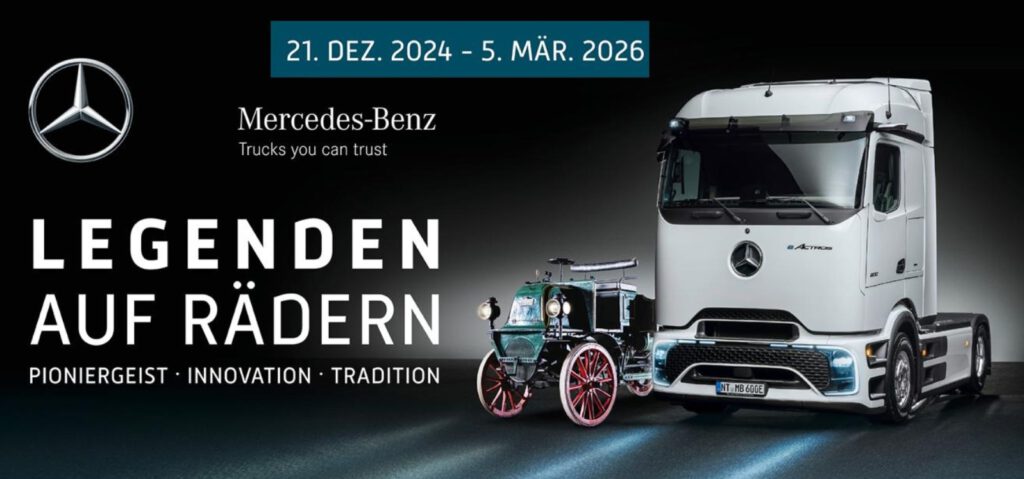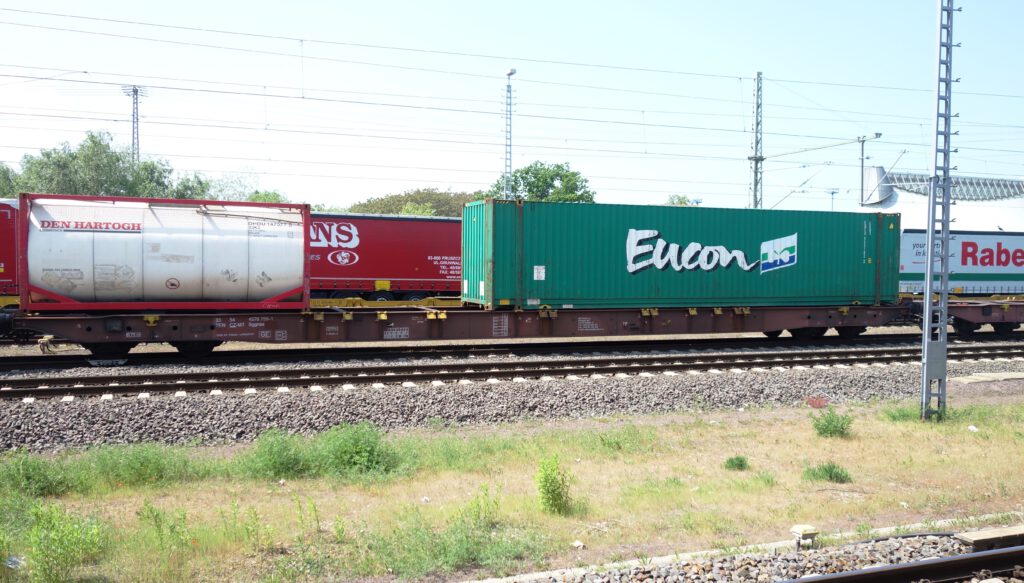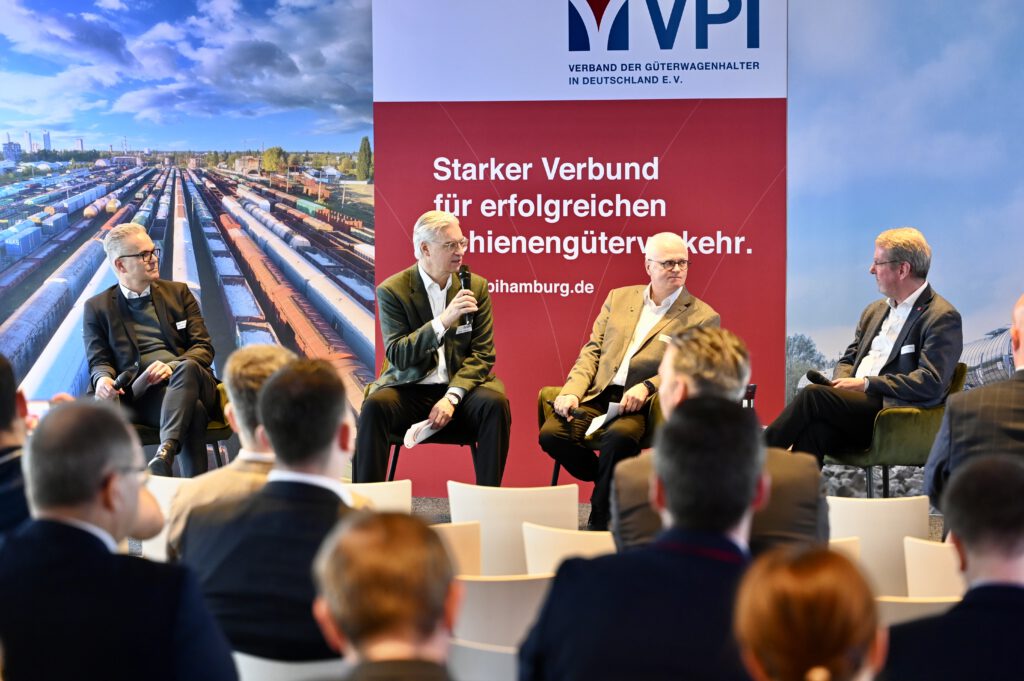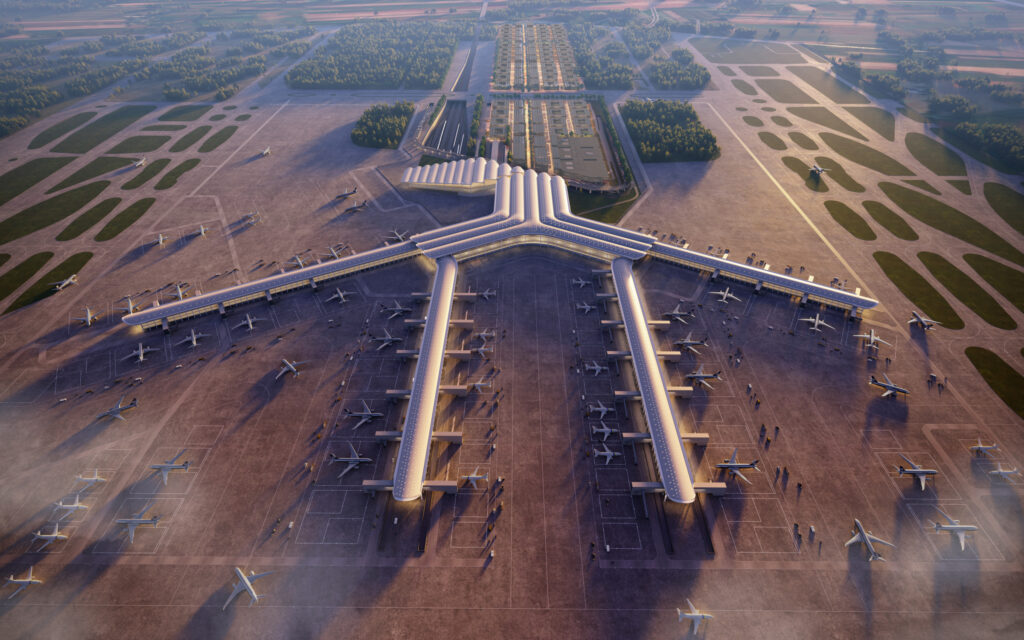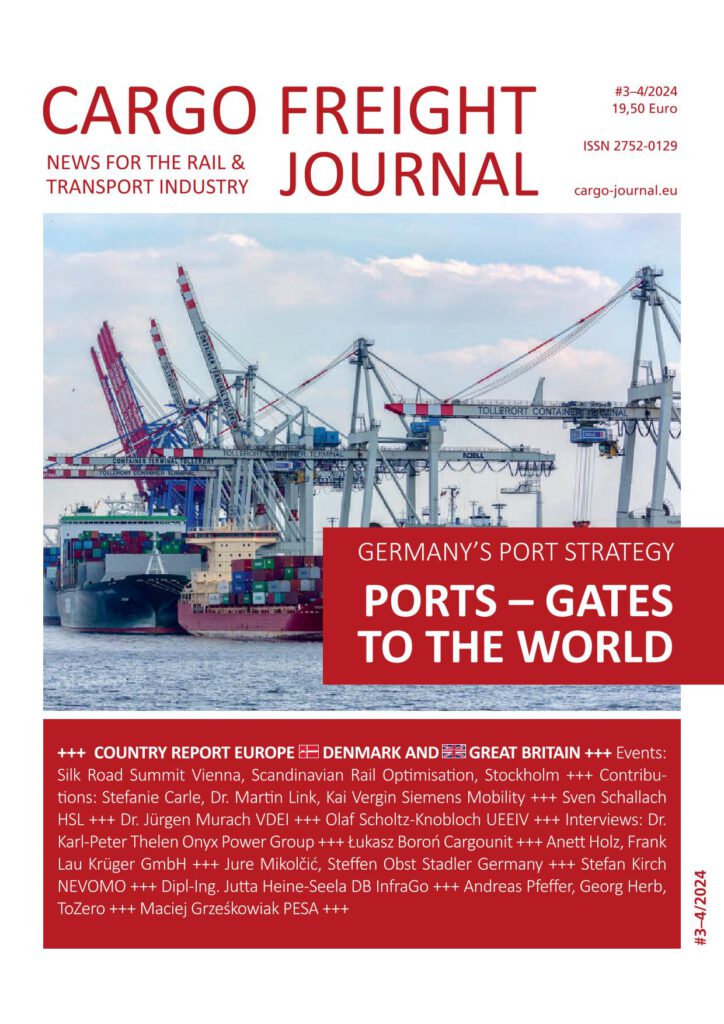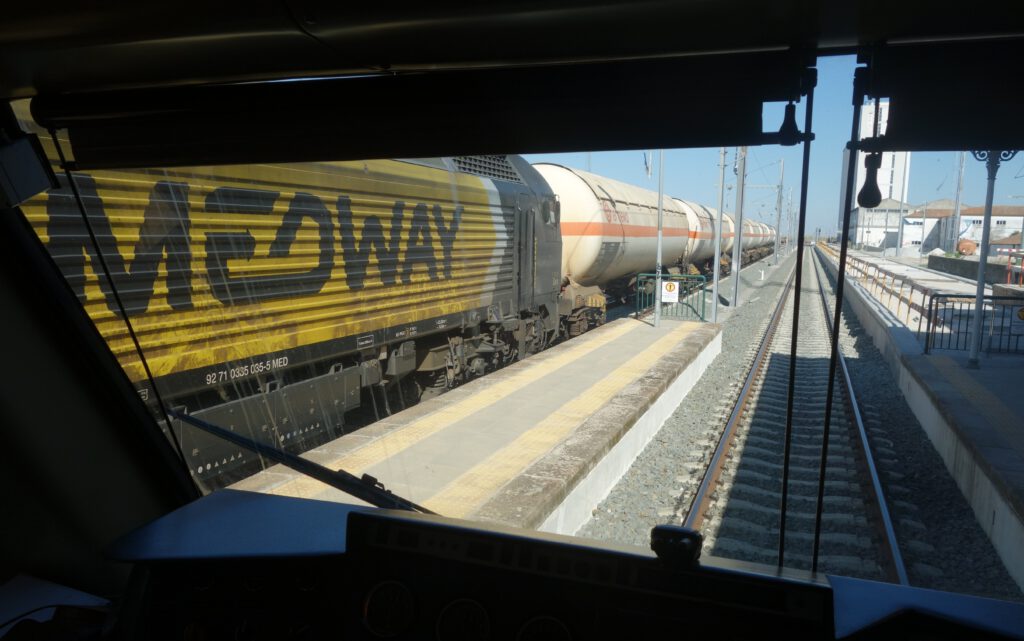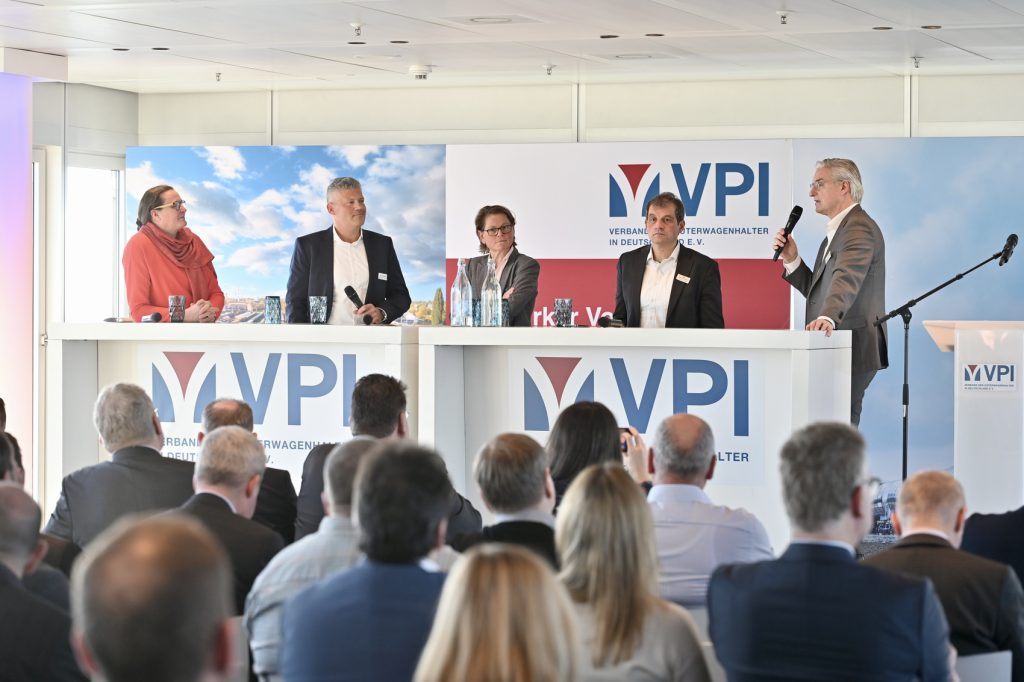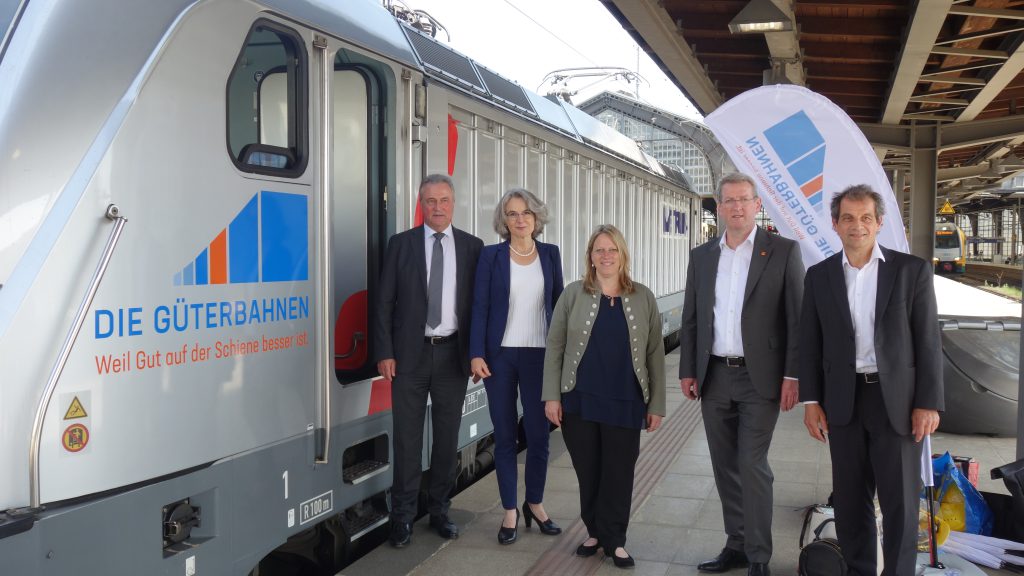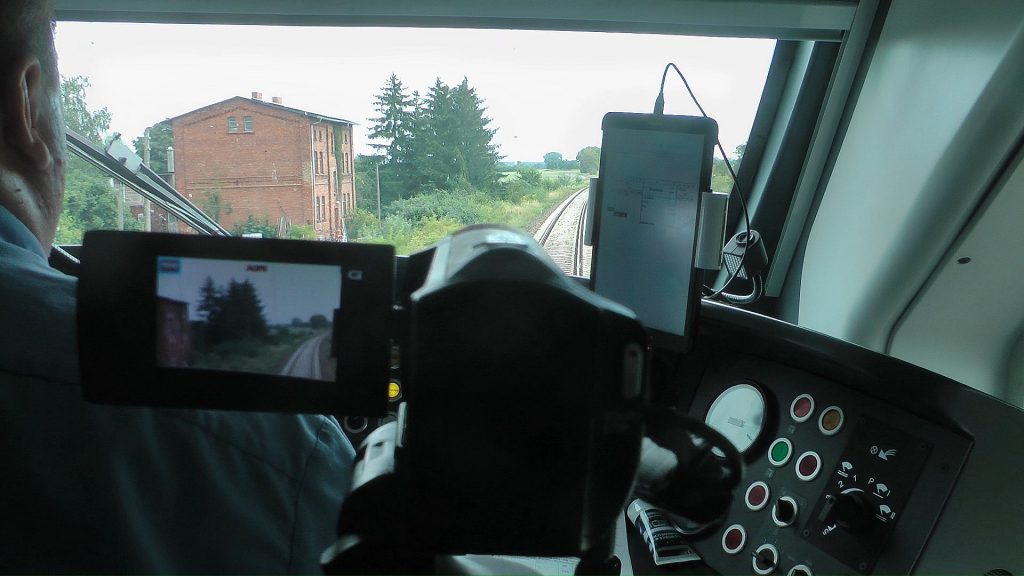- Events, Land Transport
"There has never been a truck exhibition with such weighty exhibits in the Technik Museum Speyer," said museum director Andreas Hemmer at the opening on December 20, 2024. "It is aimed at those interested in technology and vehicle enthusiasts alike and offers a comprehensive overview of the history and future of commercial vehicles from Mercedes-Benz Trucks."
- Land Transport, Logistics, Services
The German Federal Office for Mobility and Logistics (BALM) has published its moving medium-term forecast for the development of freight transport from 2024 to 2026. The basis is assumptions about geopolitical and economic developments. The authors are employees of Intraplan Consult, the client is the German Federal Ministry for Digital and Transport (BMDV).
- Land Transport, Law & Politics, Logistics, Services, Veranstaltungen
The 15th VPI Symposium of the Association of Freight Wagon Owners in Germany took place in Hamburg on January 14, 2025. VPI Chairman Malte Lawrenz described the poor condition of the railway infrastructure as the "biggest pain point in the industry". In front of the 250 participants, the VPI chairman named other key areas of action: securing innovation funding for projects such as ETCS and DAK, reforming the track pricing system, separating InfraGo from the DB Group, securing single wagon traffic and strengthening combined transport.
- Air Transport, Industry & Infrastructure, Land Transport
Centralny Port Komunikacyjny (CPK) Airport - the "Central Communication Port" - is one of the most ambitious mobility projects in Poland and Central Europe. The project can now get off to a flying start. The responsible top decision-maker of the Mazowsze Voivodeship (Masovia) announced the concrete decision to localise the CPK at a press conference on January 9, 2025.
- Land Transport
In 1814, the English railway pioneer George Stephenson constructed his first locomotive. It was a locomotive designed for coal transport, named after the Prussian general von Blücher. From Great Britain, the 1435 mm gauge spread throughout Western and Central Europe and large parts of the world outside Europe. But the privatisation of the state railway British Railways in 1994 brought ever greater problems to the once innovative British railway system. Now the railways are being nationalised again. We report on this in detail in a portrait of the British railways in issue 3-4/2024 of CARGO FREIGHT JOURNAL (cover on the left).
- Land Transport
The new year 2025, which is slowly getting underway, will once again be challenging for the rail freight transport industry.In France, the state-owned freight transport company SNCF is being largely privatised.The state-owned DB Cargo in Germany is facing staff layoffs.Problems with the inadequate rail infrastructure are hampering rail transport in several European countries.
- Industry & Infrastructure, Land Transport
With over 450 guests, the traditional New Year's reception of the Association of Freight Car Owners in Germany e.V. (VPI) set a new attendance record. At the 14th VPI Symposium on the following January 9th, the modernisation of the infrastructure and combined transport were the focus of the debates.
- Land Transport, Law & Politics
The new year 2024 has just begun. But the debates about the future of the German rail infrastructure are already starting again. The President of the Federal Association of German Industry (BDI) Prof. Dr.-Ing. Siegfried Russwurm criticised that there is currently “definitely too little capacity” in the German rail network. The infrastructure is overloaded and in need of renovation, permits and construction take too long. The managing director of the network NEE – DIE GÜTERBAHNEN (THE FREIGHT RAILWAYS) Peter Westenberger agreed with the criticism: “Fewer tracks instead of the more required ones make the growth of rail more difficult, including in freight transport.”


